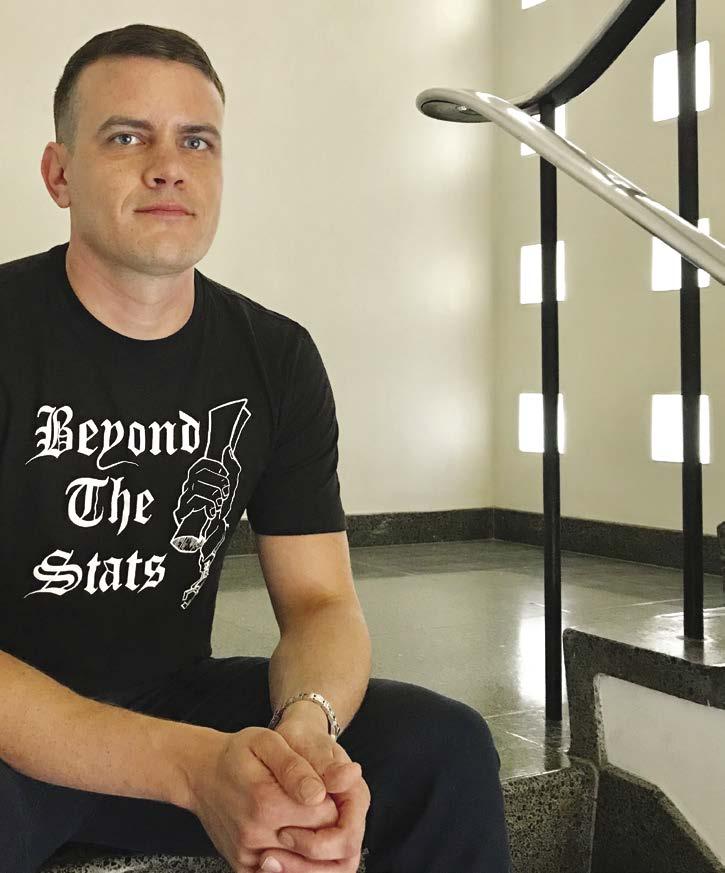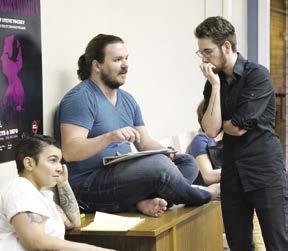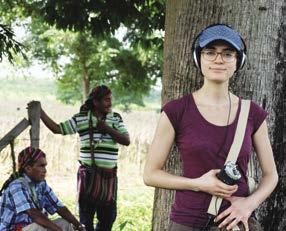
3 minute read
Humanities Redefined
Graduate students bring research to communities
Through the Mellon Public Scholars program, UC Davis graduate students combine their scholarship and passions to make a tangible difference in communities across the region, nation, and world. Working with community organizations and individuals, the scholars examine real-world problems and offer creative solutions.
Advertisement
The Andrew W. Mellon Foundation awarded the UC Davis Humanities Institute $600,000 for the next three-year round of the Public Scholars program, up from $400,000 in the 2015–18 round. Since the program started in 2015, 30 public scholar fellowships have been awarded. The new funding will allow the number of fellowships to increase from 10 to 12 annually.
“The Mellon Public Scholars program is one of the marquee programs of the UC Davis Humanities Institute, not least because it is part of a national project to redefine the humanities and arts,” said Jaimey Fisher, director of the Humanities Institute and professor of German and cinema and digital media.
“This project, really a movement, is rethinking and remaking the relationship of the humanities and arts to the world outside the university,” Fisher said. “Our graduate student scholars take their research into the world in ways that are transformative and meaningful to the mission and work of their community partners.” Projects have included studies of multiethnic publishing in the San Francisco Bay Area; experimental performance among people of color in Oakland; and the role of human behavior in energy conservation.
We Are All Students

Zachary Psick
Zachary Psick cut right to the heart of his topic in the opening words of his proposal: “My probation officer wanted me to go to prison, not college. He told me. Repeatedly. A risk assessment predicted I would reoffend.”
We Are All Students brings together Psick’s Zachary Psick research as a doctoral student in sociology, his previous work in marketing and communications, and the stories of people whose lives have been affected by America’s criminal justice system. After collecting dozens of these stories, he’ll launch a yearlong social media public information campaign aimed at changing perceptions of formerly incarcerated and other system-impacted students.
“Having people tell their stories and talk about their day-to-day lives humanizes them. It’s about reframing the narratives.”
Hidden: A Gender

Sawyer Kemp, a doctoral student in English with a background in theater, deliberated how to get more transgender people onto the stage. Working with the Gender Health Center in Sacramento, Kemp founded the theater group Skip Theory. Sawyer Kemp, right The group launched in the summer with sold-out performances of “Hidden: A Gender” by Kate Bornstein. Skip Theory is now the arts outreach arm of the center.
“I thought about the play as completely separate from my studies. Applying for the fellowship clarified how to bring all of the parts together. This is very much about the community and a way to put back into the community.”
Mayan Social Media

The indigenous people of Guatemala — and other places — are attempting to reclaim their heritage, which includes land, language, spiritual practices, medicine, and cosmology. Cinthya Ammerman, a Native Cinthya Ammerman, right American studies doctoral student, helped them use 21st century strategies to do this.
Ammerman developed a website and social media platform for the Association of Indigenous Peasant Communities for the Integral Development of Peténan, which works with the Q’eqchi’ Maya people, to reach internal and external audiences.
“I don’t want to just be an academic. I want to work with communities on the ground to bring resources and support to them.”
Extended version: https://lettersandscience.ucdavis.edu/news/humanities-redefined
— Jeffrey Day










